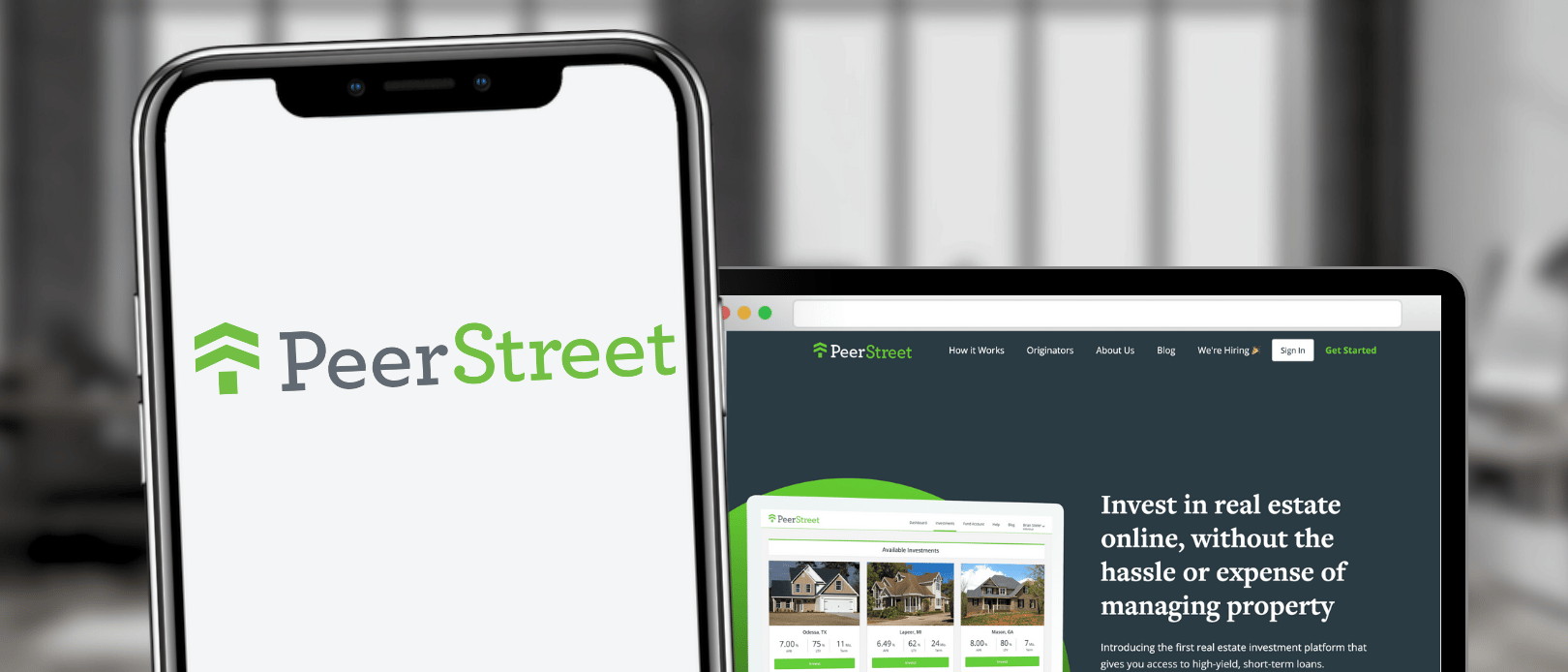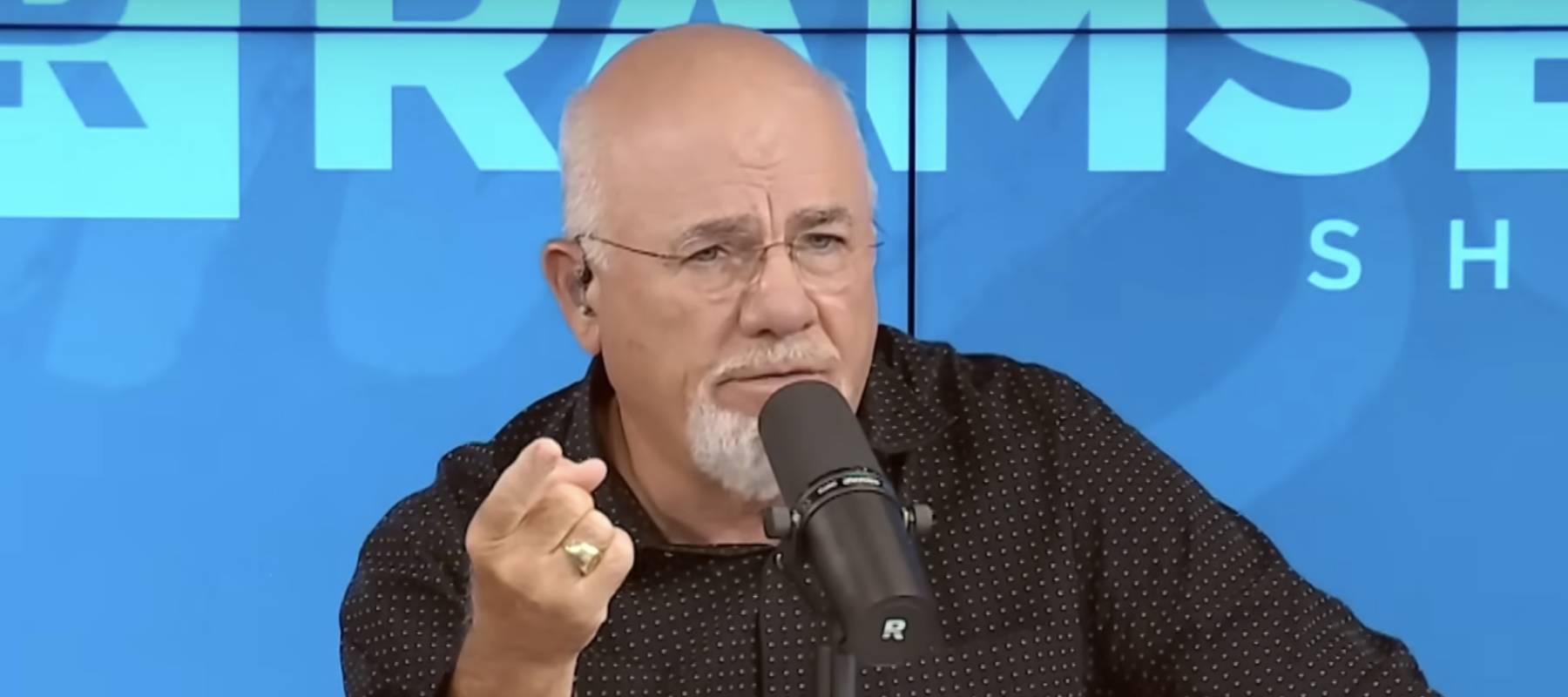
PeerStreet review – Invest in real estate debt
Monster Ztudio / Shutterstock
Updated: January 02, 2024
We adhere to strict standards of editorial integrity to help you make decisions with confidence. Please be aware that some (or all) products and services linked in this article are from our sponsors.
We adhere to strict standards of editorial integrity to help you make decisions with confidence. Please be aware that some (or all) products and services linked in this article are from our sponsors.
PeerStreet filed for bankruptcy in October 2023
What happens if PeerStreet goes out of business?
For starters, your cash funds deposited with PeerStreet are FDIC-insured for up to $250,000. However, if you invested that cash in borrower debt through PeerStreet, those funds are no longer FDIC-protected.
That should have raised a red flag to anyone with experience investing through small fintech startups. Because if the startup folds or gets handcuffed by the SEC, it could be nearly impossible to recoup your funds.
Some fintech companies like Lofty realize this and build contingencies to protect investor capital – like establishing each property as its own LLC.
PeerStreet, on the other hand, doesn't seem to have a living will. And while I doubted the SEC would come banging down the door at the time this review was written, it would assuage my concerns if PeerStreet had a better plan to protect investors’ interests from beyond the grave.
Best alternatives to PeerStreet
For REITs: Fundrise
Fundrise’s chief value proposition is the eREIT, which is like a regular REIT but with fewer intermediaries. Fewer middlemen mean lesser fees, which is a big draw for REIT investors.
You can invest in an eREIT for as little as $10, and Fundrise charges just 0.85% in asset management fees.
Compared to PeerStreet, your funds may be locked up longer with Fundrise, but you’ll be more directly invested in property and not just real estate debt.
Check out our full review of Fundrise.
This is a testimonial in partnership with Fundrise. We earn a commission from partner links on Monewise. All opinions are our own.
For fractional real estate investing: Lofty
Lofty took an early lead in the “tokenized” (i.e. blockchain-based) fractional real estate investing space, allowing users to buy partial shares.
Lofty investors can even collect rent, and soon they’ll be able to trade their equity “tokens” on Lofty’s secondary marketplace.
And while I commended Lofty earlier for having a “living will,” the COO indicated they’d done little to prepare for the inevitable SEC probe into the tokenized fractional real estate investing space.
So while investing through Lofty may be more direct than PeerStreet and more liquid than Fundrise, you may be navigating uncharted regulatory waters while you do.
This review was originally written in April 2020
PeerStreet review
PeerStreet’s homepage reads:
Invest in real estate without the hassle or expense of managing property.

This is more than a little misleading because it makes PeerStreet sound like another fractional real estate investing platform where you can buy actual slices of property (and collect partial rent).
But that’s not what PeerStreet does.
Instead, PeerStreet lets you invest in real estate loans at interest rates ranging from 6.0% to 12.0% APY and terms typically hovering in the 6- to 24-month range. And while the underlying property secures your loan, the notion that you’re investing in the real estate market is debatable.
Misleading marketing aside, how does PeerStreet work? What are the pros and cons? What are the risks associated with the double-digit returns, and is investing with PeerStreet a superior alternative to fractional real estate investing?
Let’s investigate PeerStreet.
Pros and cons of PeerStreet
Pros
- Invest in real estate debt: Although you’re never taking full- or partial ownership of property, some consider investing in real estate debt a viable and less volatile entry point into the RE market.
- Start with as little as $100: PeerStreet’s low minimum investment (down from $1,000 previously) enables accredited investors to build quite a diverse portfolio of loans.
- Shorter terms: With terms as short as one month, PeerStreet’s loans offer a unique, risk-adjusted alternative to I Bonds for generating high returns in a short lockup period.
- Automated investing: PeerStreet will automatically seek out and reserve your spot in investments that meet your preset criteria (max term, LTV, min. yield).
- Secured loans: Lenders on PeerStreet are offered the first-lien position, meaning you’re less likely to see a loss in the case of a default.
Cons
- Accredited investors only: Unlike some competitors, PeerStreet is restricted to accredited investors only.
- Short-term but highly illiquid: PeerStreet is reportedly working on a secondary marketplace, but until then, you’ll have to wait until your loans reach maturity to exit.
- Requires knowledge of private lending: Private lending is a less-regulated niche within real estate that PeerStreet investors may want to research before building a portfolio.
- Funds in Pocket (PeerStreet’s HYSA) require 15 days’ notice for withdrawals: Money stashed in PeerStreet’s in-house savings account may be too inaccessible for seizing investment opportunities.
What is PeerStreet?
PeerStreet is a peer-to-peer (P2P) lending site that connects real estate borrowers to accredited investors willing to fund their loans.
- Borrowers get their real estate loans originated quickly and with minimal red tape,
- Investors like you and me generate interest, and
- PeerStreet takes a small cut.
Everyone’s happy.
So how exactly does it all work, and what other features does PeerStreet offer?
How does it work?
Here’s a detailed breakdown of how PeerStreet works:
1. PeerStreet sources the loans
PeerStreet sources its loans from either its nationwide network of private lenders or directly from the borrowers themselves.
Borrowers can fill out a brief application form on PeerStreet.com.
As for selection criteria, PeerStreet uses a combination of “thorough human review,” an “ underwriting engine,” and “old school boots on the ground valuations” to handpick the highest quality loans.
CEO Brew Johnson has also hinted at a focus on loans that help to rejuvenate aging homes.
“As a society, we can either continue to build more new homes and take over green spaces, or we can up-cycle and renew aging and dilapidated homes.”
In the end, PeerStreet’s borrowers tend to be professional real estate equity investors flipping homes. They don’t mind paying 11% APR with PeerStreet instead of 8% with a bank because private lenders like PeerStreet are faster and enable them to seize timely business opportunities.
2. Loans are then published to the marketplace for investing
Once PeerStreet approves a loan, the company will publish it on its marketplace for accredited investors to browse and consider funding.
Due diligence includes the basics (address, photos, etc.) plus borrower credit details and financing details like APR, the loan-to-value (LTV) ratio, term, number of other investors involved, and more.

3. PeerStreet distributes borrower payments with interest to investors
Once the borrower receives the loan and begins making monthly payments, PeerStreet automatically collects and distributes the funds to investors — plus interest and minus their fees — via a monthly payment schedule. The average interest rate tends to hover around 8%.
Now that we’ve covered the core function of PeerStreet, let’s talk about some additional features.
PeerStreet features
Invest in real estate loans (not real estate itself)
It’s worth reiterating that PeerStreet is not a fractional real estate investing platform. When you invest with PeerStreet, you’re playing the role of lender — not landlord.
In more technical terms, PeerStreet investors aren’t generating income from rent and the rising value of the property. So if a borrower buys a property for $200,000, rents it for $2,000/mo., and later flips it for $300,000, you won’t share a penny of that profit.
Instead, your profit from PeerStreet comes from the borrower’s interest payments since you own a part of the borrower’s debt, not their property.
Is that a bad thing? A scam?
Not at all. Investing in private real estate debt is a bonafide investing niche; it’s more detached from property investing than PeerStreet’s marketing seems to lead on.
Automated investing
Don’t want to miss a new investment opportunity before the loan gets fully funded?
PeerStreet offers a simple-yet-handle automated investing tool that asks what kind of investment you’re looking for (max term, LTV, min. yield) and automatically sends new opportunities to your inbox to review.
It may not be as sophisticated as a full-fledged robo advisor, but for passive investors, not having to refresh PeerStreet.com constantly is a blessing.

PeerStreet Pocket (HYSA alternative)
Once you’ve funded your PeerStreet account, you might wait weeks or months for the right investment opportunity. And as any investor knows, letting money sit – especially during periods of high inflation – is a big no-no.
So PeerStreet came up with Pocket, its own in-house savings account, to incentivize investors to keep capital on the platform.
As of this writing, Pocket offers an impressive 3.5% APY, but there’s a catch: you can only withdraw from Pocket on the first of each month and only after giving PeerStreet 15 days’ notice.
3.5% APY is nearly 30x higher than the average savings account these days, but that illiquidity may be too much of a tradeoff for some fast-moving investors.
Self-directed IRAs
PeerStreet offers self-directed IRAs through STRATA Trust Company. That’s a nice touch, considering the attractive combination of flexible assets, tax advantages, and lower fees provided by this account type.
Better yet, if you fund your account with an initial investment of $5,000+, PeerStreet will waive what small fees they charge ($200).
Read more: Why smart investors should consider a self-directed brokerage IRA
Only available to accredited investors
Not a feature per se but something else worth reiterating: PeerStreet is roped off to non-accredited investors.
For the uninitiated, accredited investors are allowed to trade unregistered securities. As defined by SEC Regulation D, an accredited investor is an individual with an expected annual income of $200k+ this year and for the past two years or with a net worth exceeding $1m+.
The reason accredited investor status exists — and why PeerStreet requires you to be one — is to protect individuals below a particular net worth from devastating losses resulting from investing in unregistered securities.
What are the risks of investing with PeerStreet?
PeerStreet does an admirable job of hedging investors’ risk in a complicated space, but it still leaves a few flanks open.
What happens if a loan defaults?
PeerStreet has a whole FAQ on the topic, explaining how their experienced, in-house Servicing and Asset Management team will swoop in quickly to protect investors’ capital.
First, PeerStreet will pay legal fees and other foreclosure-related costs. Next, they will distribute principal, interest, and default payments to investors on a pro-rata basis (i.e. proportionate to their investment).
PeerStreet considers loan extensions on a case-by-case basis, and it doesn’t appear they solicit investor voting in that decision. They only distribute 50% of the default interest they collect to investors.
Can I resell my debt holdings on a secondary market?
Not at this time. So if you invest in real estate debt through PeerStreet, it’s best to consider that capital locked in until the loan matures and you receive your last monthly principal + interest payment.
PeerStreet is working on a secondary market, but details are scarce, and a launch date has not been announced.
The takeaway: Who is PeerStreet best for?
All things considered, PeerStreet is best for investors seeking high single-digit returns on short-term investments. PeerStreet investments behave much like bonds, so they could present a nice alternative when the bond market is underperforming.
Plus, you may feel good knowing your capital is helping to “up-cycle” an older home for the newer generation.
Further reading:





